NIH IMSD
The Initiative For Maximizing Student Development in Biomedical Sciences aims to enhance the recruitment and retention of students with the skills to transition successfully into biomedical research careers.
Maximizing Student Development in Biomedical Sciences
IMSD at TAMU is a T32 training program funded by the National Institute of General Medical Sciences of the National Institutes of Health that supports 12 new trainees per year. This program will serve as a hub for unifying training-oriented initiatives in biomedical fields and establish a community of scholars in biomedical sciences fields at Texas A&M. This research training program aims to strengthen research training environments and promote broader participation in the biomedical research workforce by expanding the pool of well-trained scientists earning a Ph.D.
IMSD funding supports selected student trainees in one of the six major biomedical graduate training programs at Texas A&M University:
- Medical Sciences
- Biomedical Sciences
- Genetics and Genomics
- Toxicology
- Biochemistry & Biophysics
- Biomedical Engineering
Objectives
- Institutionalize successful recruitment and retention efforts for doctoral students in biomedical disciplines.
- Augment-specific program-related doctoral training in critical thinking, scientific reasoning, rigorous research design, experimental methods, quantitative and computational approaches, and data analysis and interpretation with additional skills to independently acquire the knowledge needed to advance in their chosen biomedical fields.
- Create a vibrant and supportive community of scholars to stimulate interest and enrollment in biomedical graduate programs at Texas A&M University, and create a model program that increases the number of competitive biomedical graduates.
- Provide biomedical trainees with the knowledge, professional skills and practical experiences required to identify and transition into careers in the biomedical research workforce.
- Link and leverage other Texas A&M graduate programs to enhance student development in graduate education, especially those involving former students, for synergy and to disseminate findings.

Program Activities
Once enrolled, students will enter a personalized program that combines instruction, research, mentoring and aspects of career development.
Year One of the Doctoral Program
Support from this program is offered in the first year of the doctoral program, at the time when trainees undertake two laboratory rotations, follow structured core academic curricula of their respective graduate programs, and participate in regular joint activities as a group.
A distinctive feature of the IMSD program is a strongly encouraged hands-on summer externship through a broad and diverse network of academic laboratories, state and federal governmental agencies, as well as industry and non-governmental organizations, where they can gain professional training and establish career-building relationships.
Year Two and Beyond
Following the first year, support will shift to trainee’s graduate program, mentor, or other related programming. However, trainees will continue participation in program-related functions that enable them to maintain a strong bond to a community of scholars in addition to their home programs. Trainees affiliated with this program will be highly successful in academia, industry, government and other professional settings in health-related disciplines.
Activities and products students will have completed by the end of the program include:
- Annually-reviewed, comprehensive individual development plan (IDP) that verifies activity completion.
- Identified advisor, mentor, committee, and learning communities that meet regularly.
- Annually-reviewed CV that enumerates skills, products, and participation in non-academic (e.g., externship) and academic (e.g., conferences) events.
- Completed dissertation.
- Academic identity products and practical skills used for job search and early career positioning (such as social media presence).
- Multiple job applications and job interviews.
- Secured position after dissertation completion.
- Established a plan for early career success.
Timeline
The training timeline and 11 implementation activities for the TAMU IMSD model are detailed below.

BIOMEDICAL DATA SCIENCE ONLINE TRAINING PROGRAM
The Texas A&M Institute of Data Science (TAMIDS) provides a series of online training programs on computation systems and statistical learning in Data Science in the biomedical domain. Sessions couple exposition of underlying principles with the engagement of participants through quizzes and exercises focused on developing computation competencies.
Target participants are Ph.D. trainees in biomedical training programs at Texas A&M and beyond in the second or later years of their programs.
For more information and program schedules, visit the program website.
Leadership
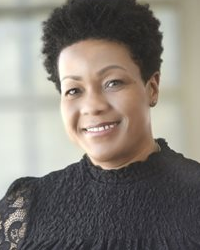
Dr. Shannon Walton
Assistant Dean
Graduate & Professional School
Principal Investigator

Candice Brinkmeyer-Langford
Research Associate Professor
Department of Veterinary Integrative Biosciences
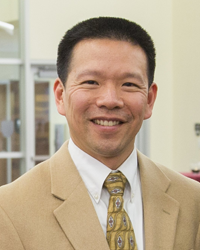
Weihsueh A. Chiu
Professor
Department of Veterinary Integrative Biosciences

Roland Kaunas
Associate Professor
Department of Biomedical Engineering

Ivan Rusyn
Professor
Toxicology Interdisciplinary Graduate Program and Department of Veterinary Integrative Biosciences

David Threadgill
University Distinguished Professor
Genetics Interdisciplinary Graduate Program and Departments of Molecular & Cellular Medicine and Biochemistry & Biophysics
Executive Committee

Dr. Michael Criscitiello
Associate Dean for Research and Graduate Studies
Vet Med Pathobiology
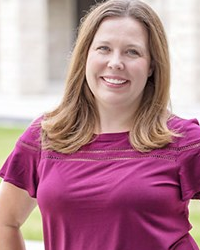
Dr. Ashley Seabury
Program Director & Dean
Veterinary Medicine
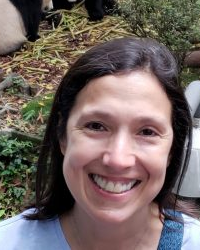
Dr. Isabel Caballero
Postdoctoral Research Associate
Biochemistry & Biophysics

Dr. Zachary Adelman
Professor & Endowed Chair
Agricultural Biotechnology, Entomology
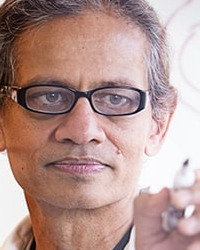
Dr. Rajesh Miranda
Professor
Neuroscience & Experimental Therapeutics, Medical Sciences

Dr. Michael Polymenis
Professor
Biochemistry and Biophysics

Dr. Daniel Alge
Associate Professor and Director of Graduate Programs
Biomedical Engineering
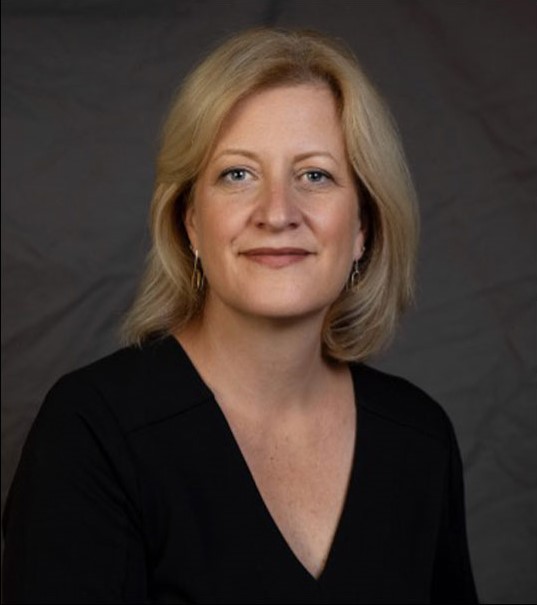
Dr. Gillian Bartlett
Associate Dean of Graduate Studies
College of Medicine
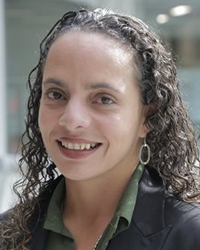
Jackie Perez
Business Coordinator
Graduate & Professional School
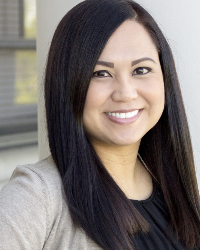
Isah Juranek
Student Success Coordinator
Graduate & Professional School
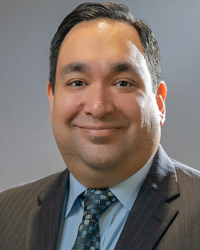
Victor Gongora
Program Coordinator II
Graduate & Professional School
Evaluator
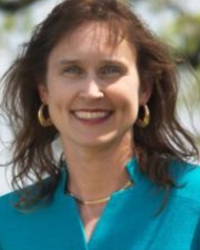
Dr. Theresa Murphrey
Professor
Agricultural Leadership, Education, and Communications
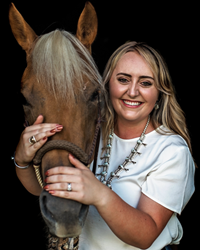
Megan Greenwood
Student Assistant
Advisory Boards
Internal and external advisory boards provide oversight and support IMSD programming.
Internal Advisory Board
The Internal Advisory Board’s role is to ensure tight integration of this training program with the rest of Texas A&M University and with individual Colleges. To this effect, the Board includes representatives of the administration for participating Colleges.

Robert Burghardt, Ph.D.
Associate Dean for Research and Graduate Studies
College of Veterinary Medicine and Biomedical Sciences (CVM)

Roderic Pettigrew, Ph.D., M.D.
Executive Dean for Engineering Medicine
Chief Executive Officer of Engineering Health

Kenneth Ramos
Executive Director, Texas A&M Institute of Biosciences and Technology
Professor of Medicine, Texas A&M College of Medicine
Vice President for Research, Texas A&M Health Science Center
Assistant Vice Chancellor for Health Services, the Texas A&M University System
External Advisory Board
The External Advisory Board’s roles are to (i) ensure the academic and research excellence of the training program, (ii) review the outcomes and learning objectives of the trainee externships, (iii) confirm the program’s adherence to the IMSD Programmatic goals, and (iv) inform the program’s leadership, mentors, and trainees of opportunities for research, training and career options in biomedical fields. To this effect, the Board includes representatives from academia and non-academic fields such as drug industry and Federal government, and non-governmental organizations.

David Eaton, Ph.D.
Dean of the Graduate School
Vice Provost Emeritus & Professor Emeritus
Environmental & Occupational Health Sciences, University of Washington

Dr. Carlos Rodriguez-Garcia
(AstraZeneca)

Cato Laurencin, M.D., Ph.D.
Professor
University of Connecticut
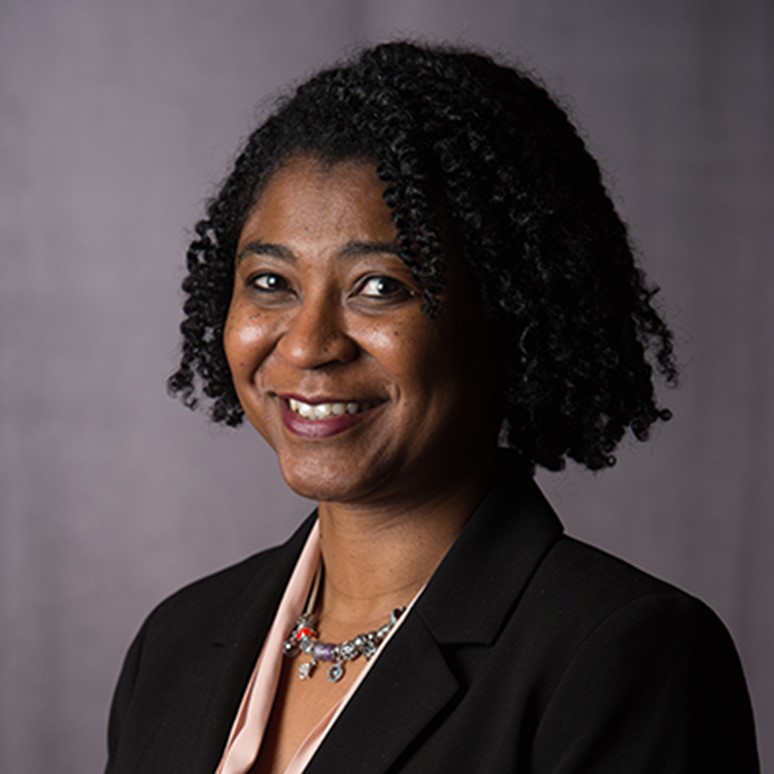
Dr. Myrtle Davis
(Bristol-Myers Squibb)
Trainees
COHORT 1 (Fall 2020)
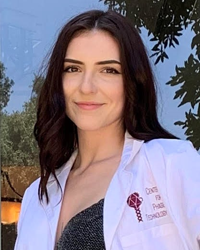
Sophia (Frankie) Antillon
Biochemistry & Biophysics
Undergraduate Institution: University of La Verne
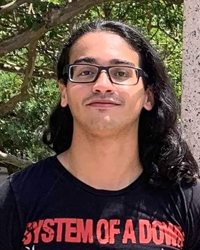
Pedro Monagas-Valentin
Biochemistry & Biophysics
Undergraduate Institution: University of Puerto Rico

Molly McClurg
Biomedical Sciences
Undergraduate Institution: Texas A&M University - Kingsville
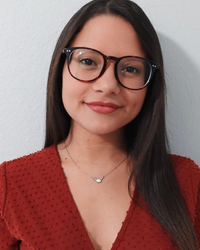
Osiris Lopez-Garcia
Genetics and Genomics
Undergraduate Institution: University of Puerto Rico
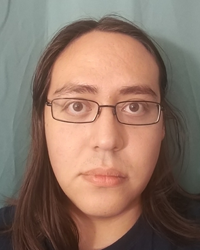
Eduardo Martinez
Genetics and Genomics
Undergraduate Institution: UT - Rio Grande Valley

Daniela Ayala
Medical Sciences
Undergraduate Institution: San Diego State University
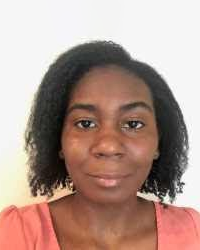
Aja Coleman
Medical Sciences
Undergraduate Institution: Trinity University
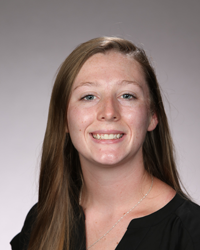
Kelly Rivenbark
Toxicology
Undergraduate Institution: King University
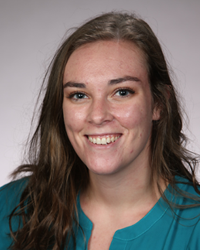
Haley Moyer
Toxicology
Undergraduate Institution: Lock Haven University
COHORT 2 (Fall 2021)

Hayley Boswell
Biochemistry
Undergraduate Institution: UT Austin
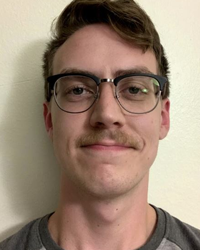
Nathan Williams
Biochemistry
Undergraduate Institution: Youngtown State University

Ilana Mosley
Biomedical Sciences
Undergraduate Institution: Pennsylvania State University

Olivia Dingus
Biomedical Engineering
Undergraduate Institution: California State Polytechnic University

Hannah Carter
Genetics and Genomics
Undergraduate Institution: Texas A&M University
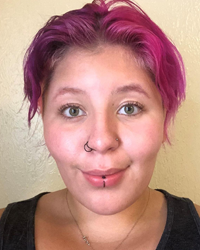
Riley Figueroa
Genetics and Genomics
Undergraduate Institution: Colorado College
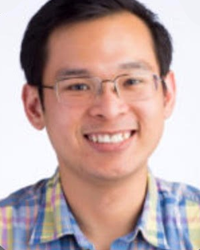
Thien Phan
Medical Sciences
Undergraduate Institution: University of Mary Washington
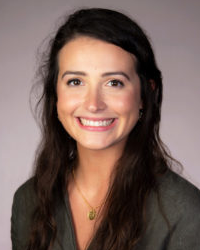
Mariana Saitas
Toxicology
Undergraduate Institution: Texas A&M University

Samera Mulatu
Toxicology
Undergraduate Institution: Georgia Southern University
COHORT 3 (Fall 2022)

Addison Frese
Biochemistry & Biophysics
Undergraduate Institution: Texas A&M University

Cody Gode
Biochemistry & Biophysics
Undergraduate Institution: Purdue University

Ryan Davis
Biomedical Engineering
Undergraduate Institution: Texas A&M University
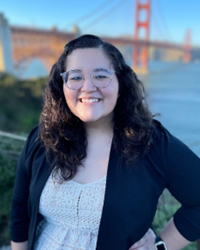
Jocelyn Martinez
Biomedical Engineering
Undergraduate Institution: Texas A&M University
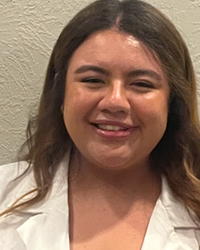
Kaylee Delgado
Biomedical Sciences
Undergraduate Institution: St. Edwards University

Christina James Thomas
Biomedical Sciences
Undergraduate Institution: University of North Texas - Dallas
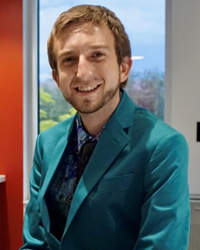
Ari Aviles
Genetics and Genomics
Undergraduate Institution: Florida Atlantic University
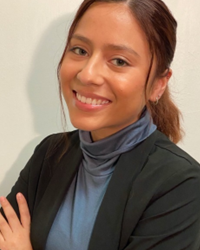
Daniela Ruiz
Genetics and Genomics
Undergraduate Institution: Prairie View A&M University
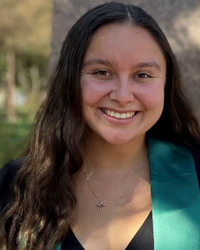
Kaitlyn Armijo
Medical Sciences
Undergraduate Institution: Baylor University

Shedreanna Johnson
Medical Sciences
Undergraduate Institution: Nicholls State University

Jennifer Poole
Toxicology
Undergraduate Institution: York College of Pennsylvania
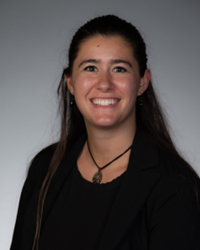
Devin Teri
Toxicology
Undergraduate Institution: Randolph-Macon College
COHORT 4
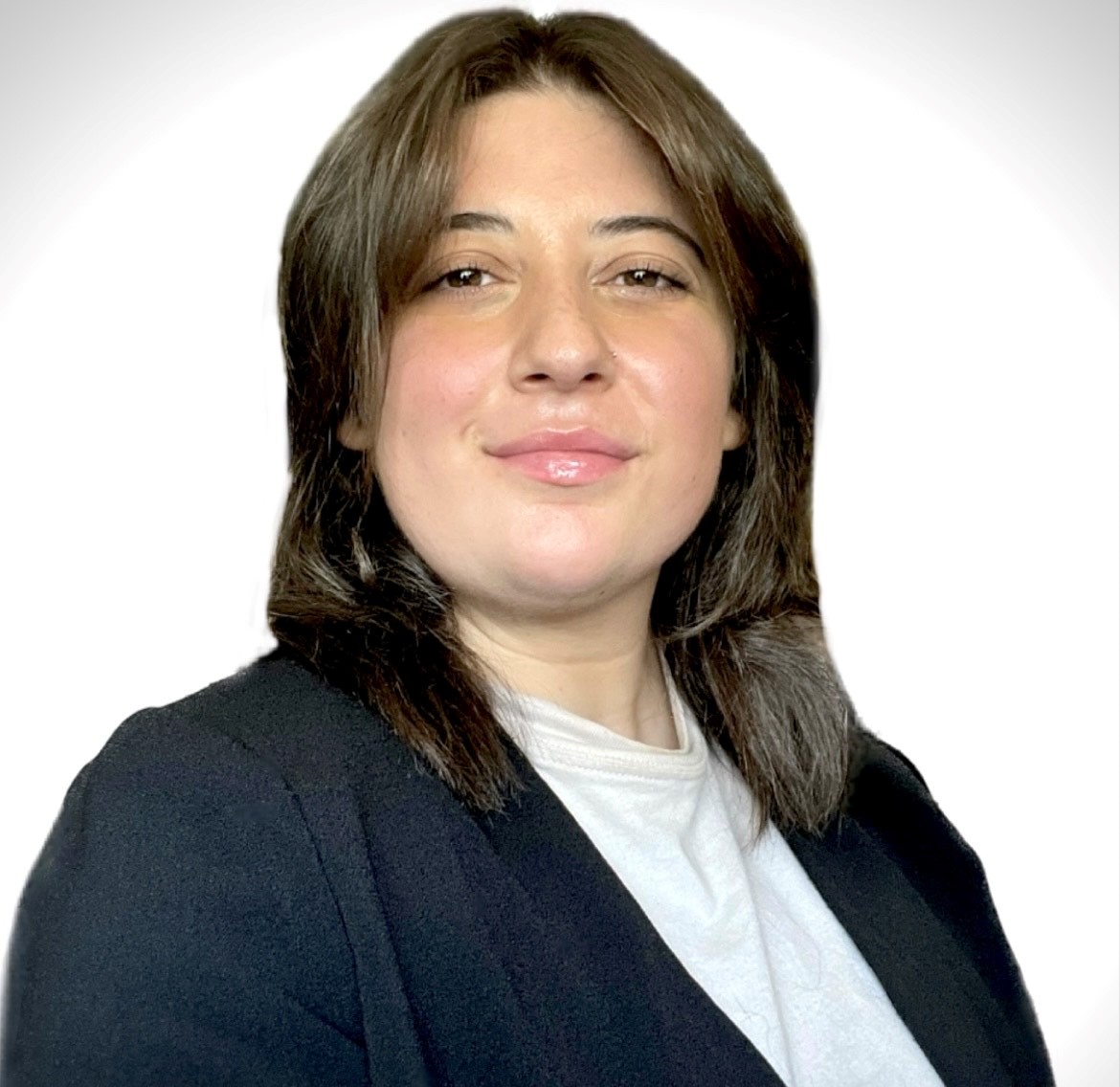
Zaina Majdi Aljayyousi
Biochemistry & Biophysics
Undergraduate Institution: California State University - San Marcos
Jadon Sitton
Biochemistry & Biophysics
Undergraduate Institution: University of Mary Hardin-Baylor
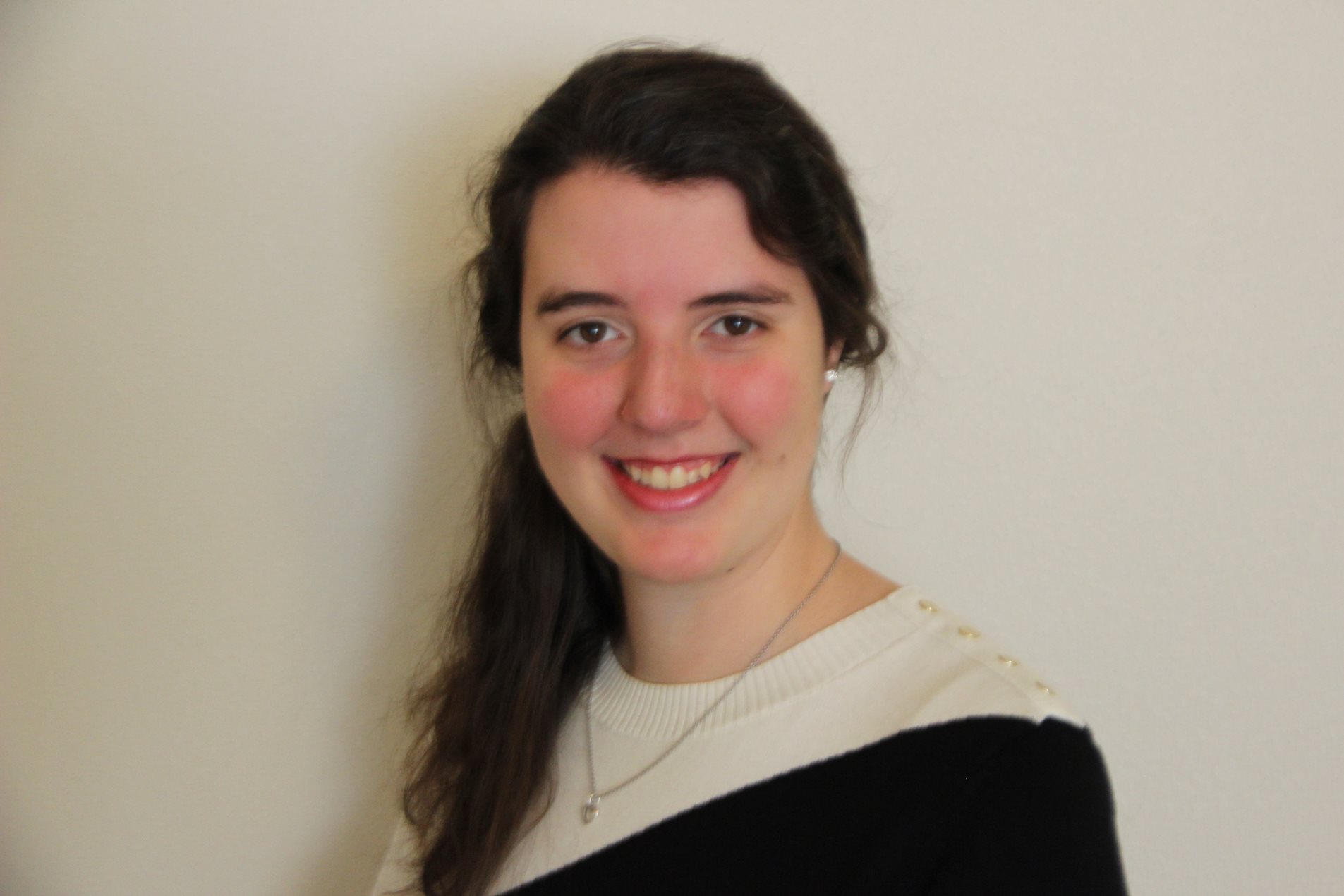
Sarah Fross
Biomedical Sciences
Undergraduate Institution: Texas A&M University - College Station

Sarah Wolff
Biomedical Sciences
Undergraduate Institution: Pennsylvania State University

Kiara Perez-Ponce
Biomedical Engineering
Undergraduate Institution: Texas A&M University - College Station
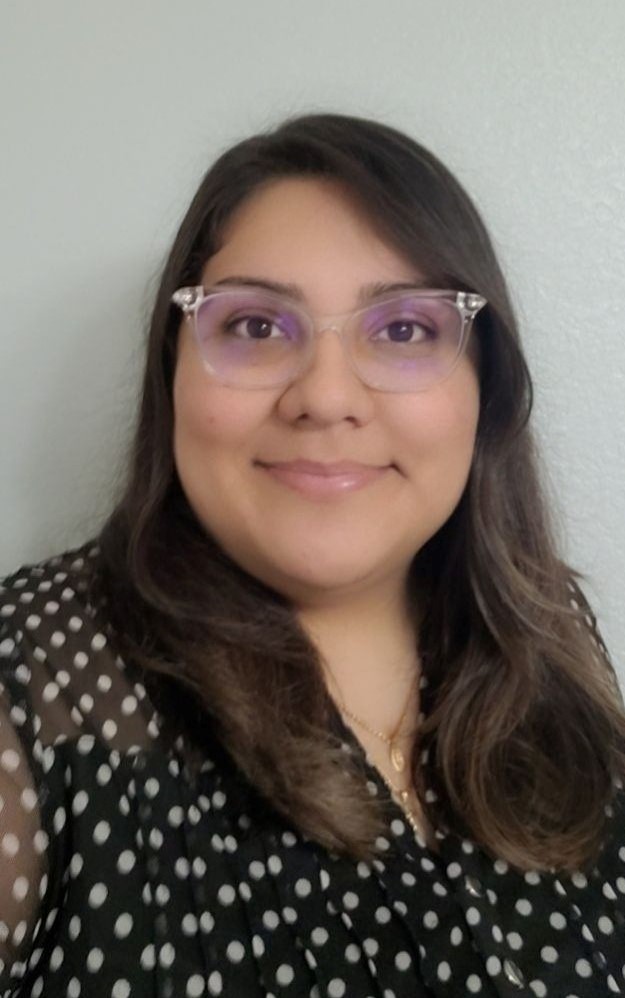
Elizabeth Tenorio
Biomedical Engineering
Undergraduate Institution: Texas A&M University - College Station

Marianny Alvarado-Gonzalez
Genetics & Genomics
Undergraduate Institution: University of Puerto Rico - Mayaguez
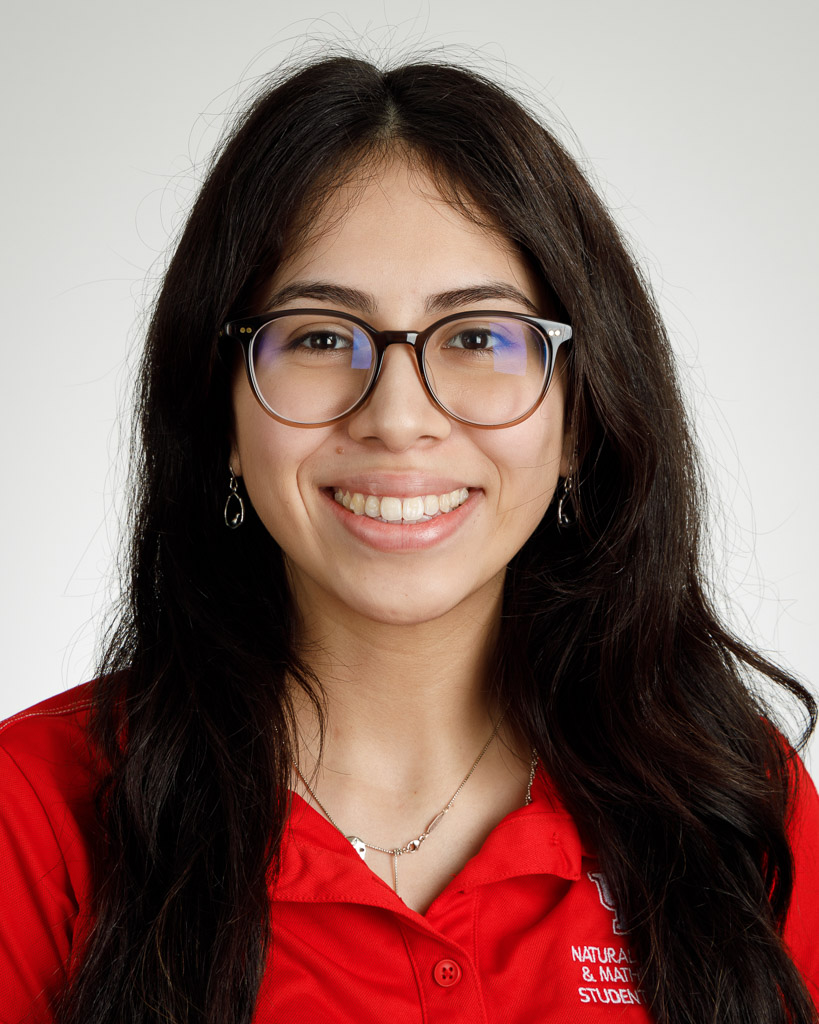
Paola Najera
Genetics & Genomics
Undergraduate Institution: University of Houston University Park
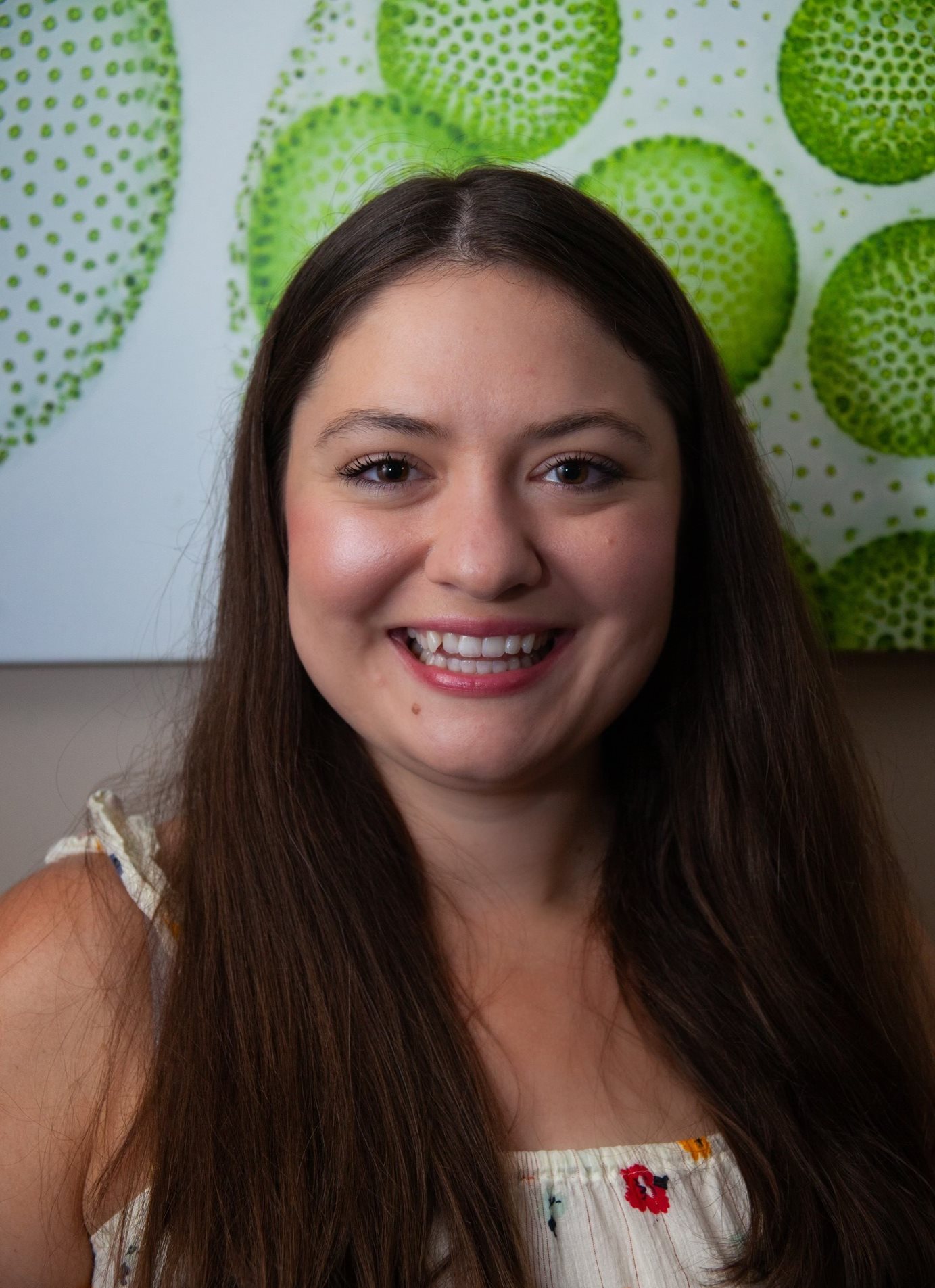
Savana Green
Medical Sciences
Undergraduate Institution: Texas A&M University - College Station

Nesha Rubin
Medical Sciences
Undergraduate Institution: University of Texas - Austin

Nikita Dougan
Toxicology
Undergraduate Institution: University of New Mexico - Albuquerque
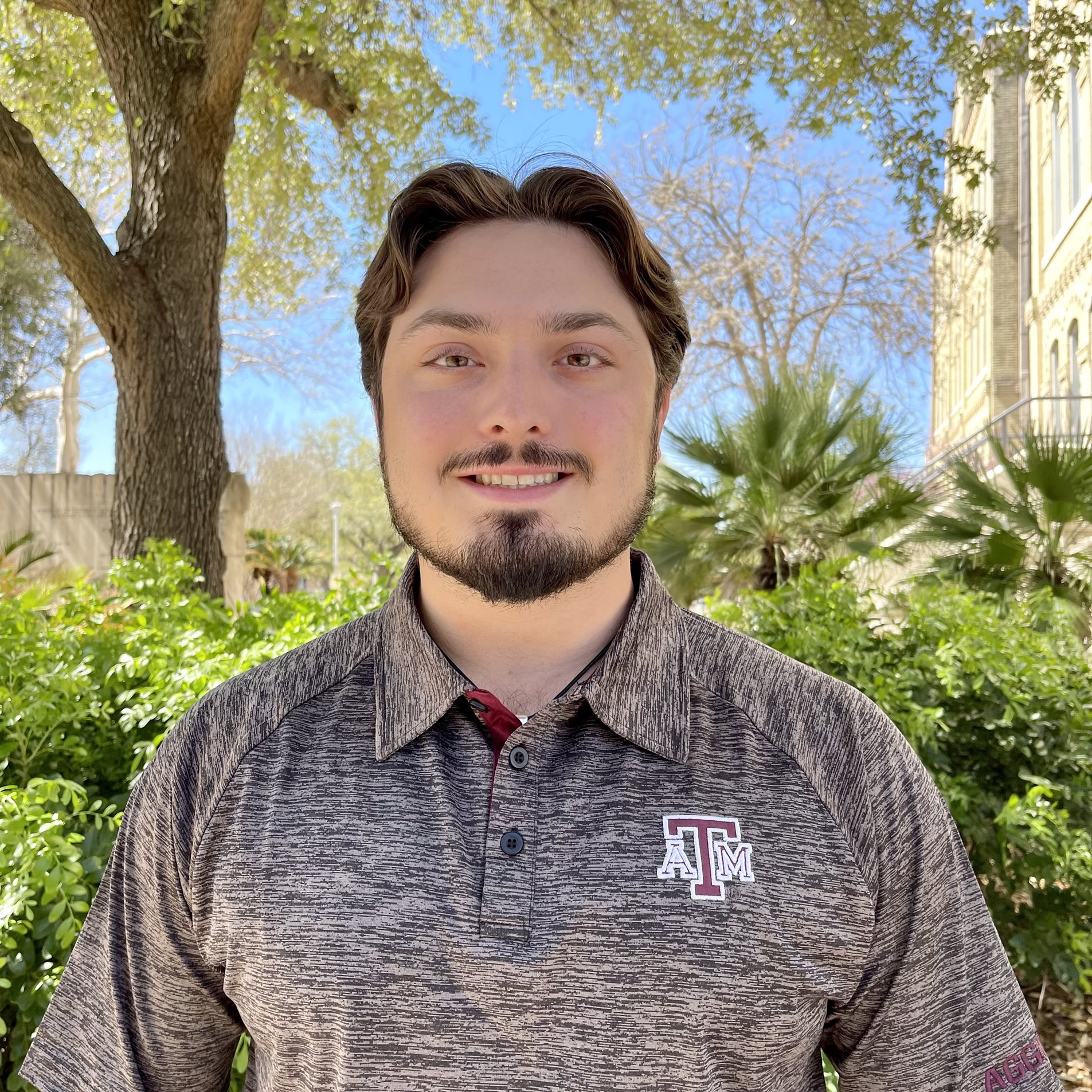
Zachary Kobs
Toxicology
Undergraduate Institution: St. Mary's University
COHORT 5
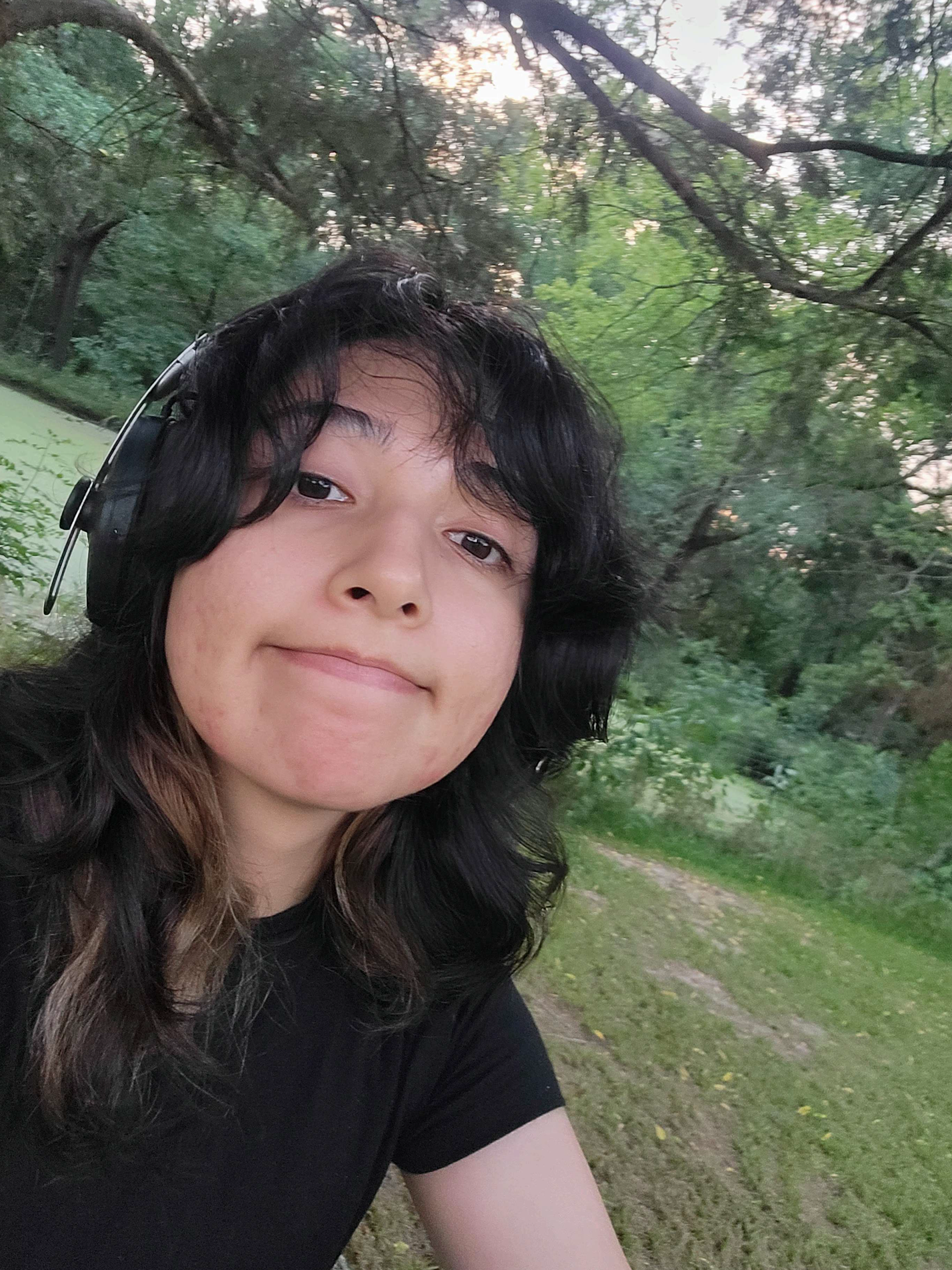.png)
Valeria Duran Salas
Genetics & Genomics
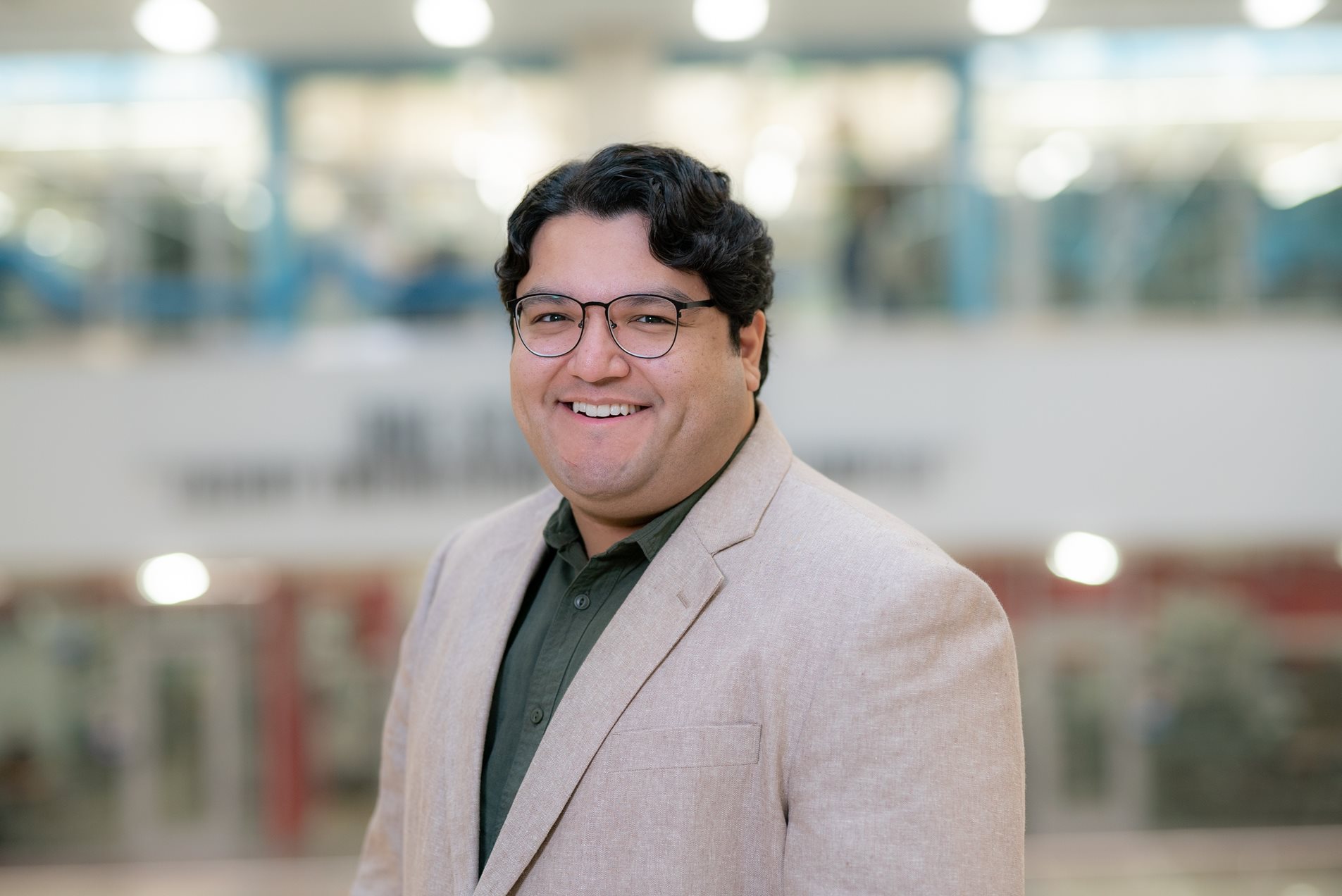
Gustavo Elizondo
Toxicology
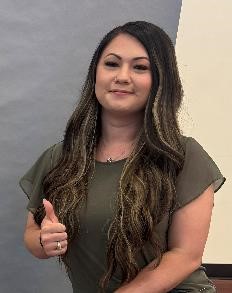.jpg)
Michelle Emmel
Biomedical Sciences
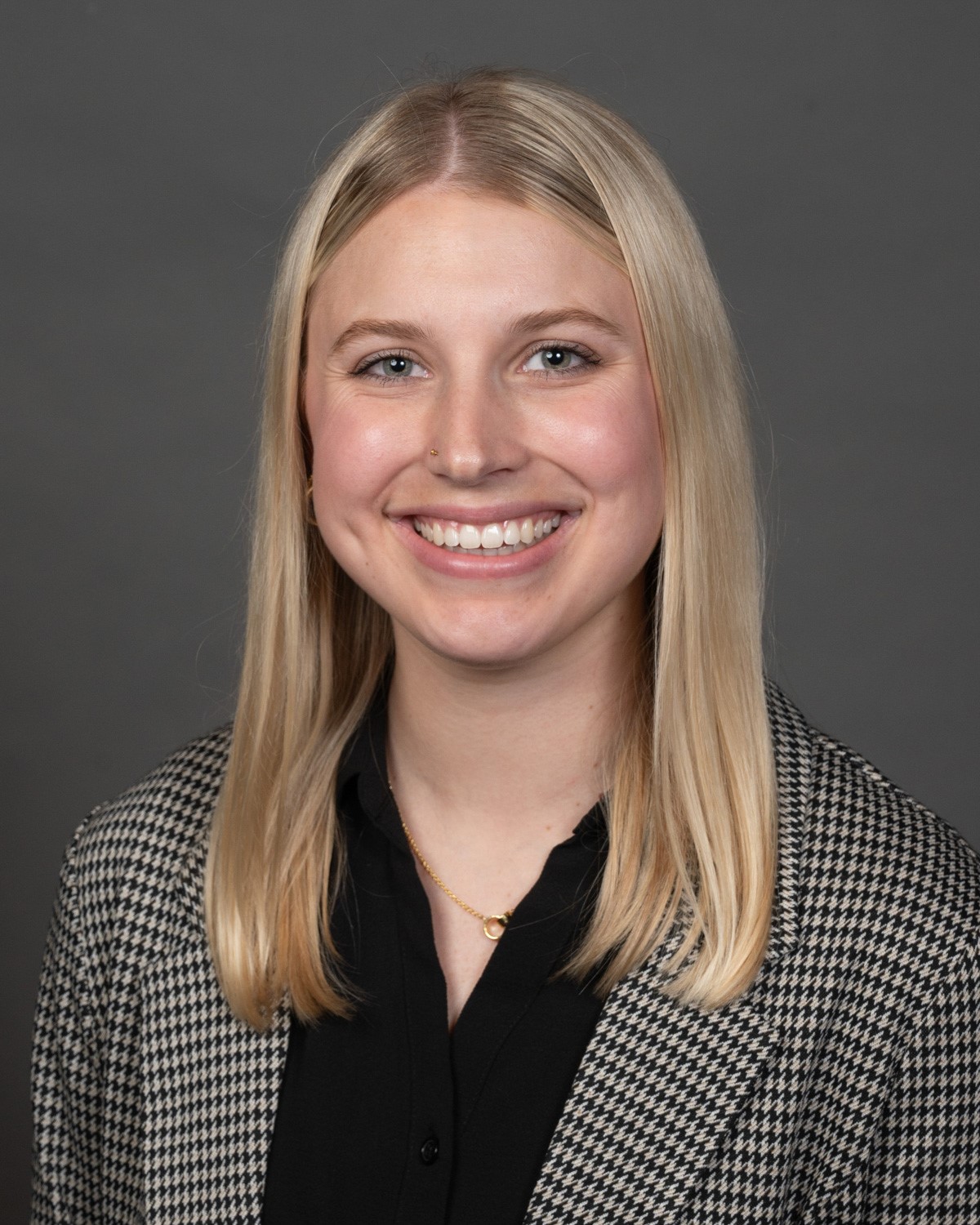
Brighton Garrett
Genetics & Genomics

Rian Hernandez
Medical Sciences

Kayley McBride
Biomedical Engineering
.png)
Madison McFarland
Toxicology

Camryn Mikosh
Biochemistry & Molecular Biophysics

Karla Isabel Ortega-Sandoval
Biomedical Engineering
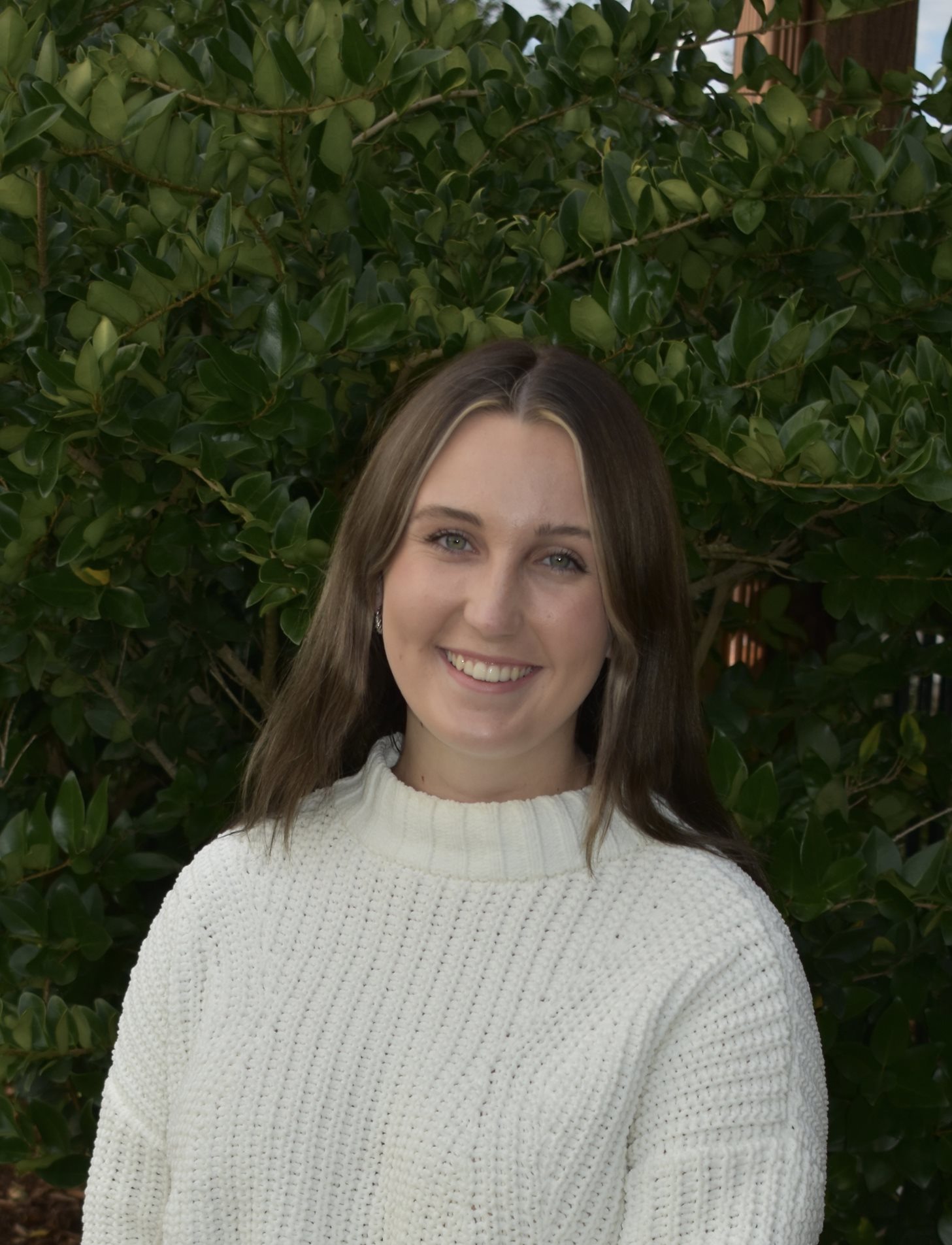
Sophia Schutmaat
Biomedical Sciences
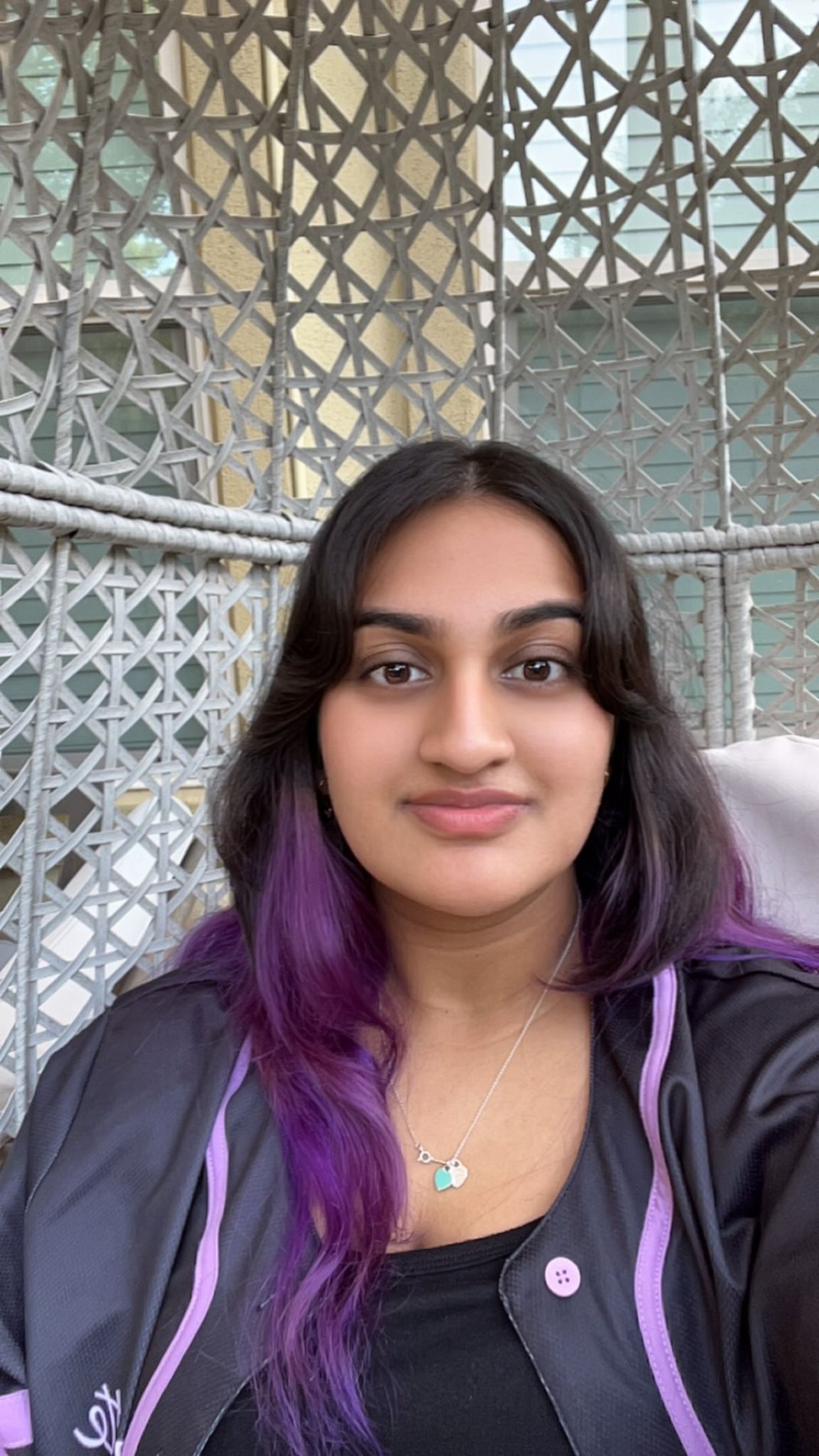
Saloni Shah
Medical Sciences

Caden Summers
Biochemistry & Molecular Biophysics
Texas A&M's Commitment to Climate Enhancement
Texas A&M's Division of Student Affairs administers a variety of services, centers and resources to support undergraduate and graduate students of all backgrounds and identities. Connect with Multicultural Services and find resources for veterans and individuals with disabilities and more.
Contact
If you have further questions about the IMSD T32, email grad-t32@tamu.edu.